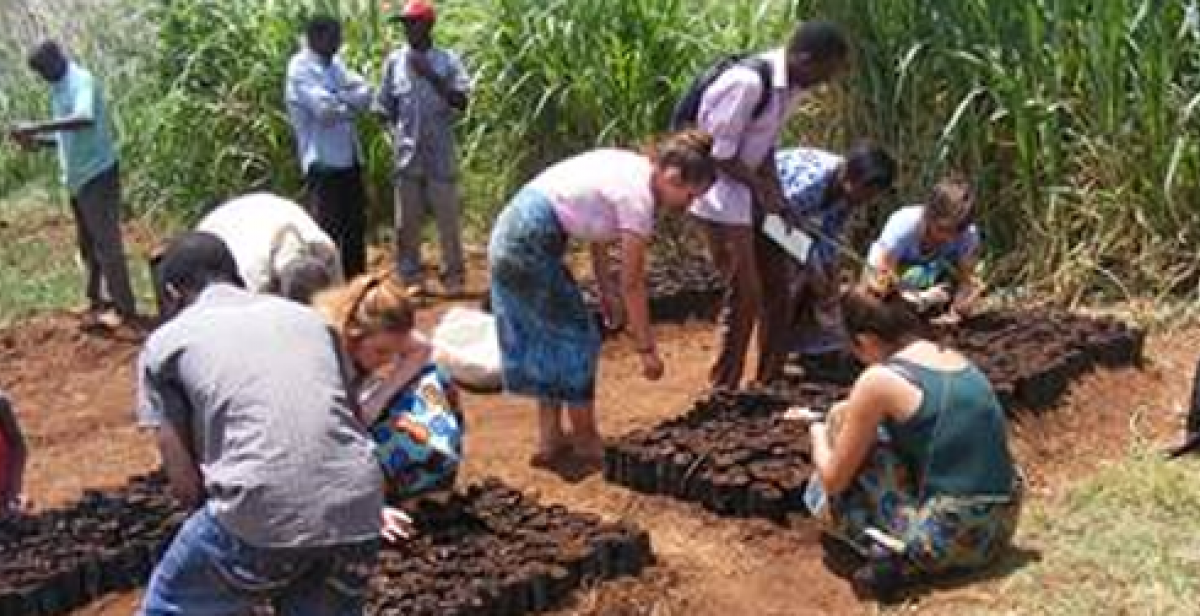‘Monitoring and evaluation’… doesn’t sound like the most exciting job ever does it? But it is one of the most important aspects of our development work here in Malawi. There is no point holding a conservation agriculture awareness campaign in a village or giving an educational talk on HIV/AIDS to a school, unless we know how effective it has been. It’s also essential for us to follow the progress of our long term projects, such as the Moringa trees which were planted in their thousands. The aim being to provide an important source of nutrition and income for the local community.
Monitoring the progress of a project means we are able to identify any problems that may arise and increase the project success rate, which has a positive impact on the welfare of the community. Once an activity has succeeded, it is equally important to evaluate the impact and effectiveness of it. We want to make sure that our work has made a difference to the community.
Things we look for during evaluation include the efficiency of the project, its effectiveness and impact on the target group and its sustainability for continuation without our help, befitting Progressio’s vision: ‘Poor people empowered to transform their lives.’
This week, one of our tasks was to follow up the effectiveness of a HIV/AIDS awareness campaign which was held in Phalazi by the last cycle of volunteers in August. The theme was ‘Holding Hands Together to Fight HIV/AIDS’, covering topics which are particularly important to the community such as transmission, prevention, stigma, discrimination and management. Our job was to evaluate the success of the campaign by finding out how many attended, what they learnt, whether the campaign was beneficial to the community and their feedback on how the campaign went.
Phalazi is a large community split into 10 smaller villages. The follow up, targeted a total of 15 households spread across Phalazi. We were welcomed into their homes to discuss the campaign, their knowledge of HIV/AIDS and how the campaign could have been improved.
It was important to know what impact the awareness campaign had; we found that attendance was dependent on distance from the event location; those living further away were less likely to attend than those living closer. The knowledge that community members had retained from the educational element of the campaign was promising, some could list many ways that HIV/AIDS can be transmitted and could describe reasons why someone living with HIV/AIDS may feel discriminated against.
A very positive finding from a majority of households interviewed was that discrimination against those living with HIV/AIDS seemed to have improved as a result of the awareness campaign. Community members said that they now know more about how HIV/AIDS progresses and what help is available to those living with the disease and their carers. Many respondents also said that this knowledge enabled them to be more supportive to their fellow community members, who had previously felt stigmatised.
We were able to identify limitations with the campaign such as its failure to reach out to the further villages and can consider this when planning other campaigns in the future. All those interviewed were very keen to have another HIV/AIDS campaign in Phalazi, even those who already had a good understanding of HIV/AIDS, as they wanted to increase their knowledge.
One individual highlighted the constant development of technology and knowledge surrounding HIV/AIDS and the importance of feeding this back to the villages via awareness campaigns. This enthusiasm and positivity proves that the campaign was ultimately a success.
Written by Sophie Claessens and William Tiyanjane
Photos by Tamara McCauley



